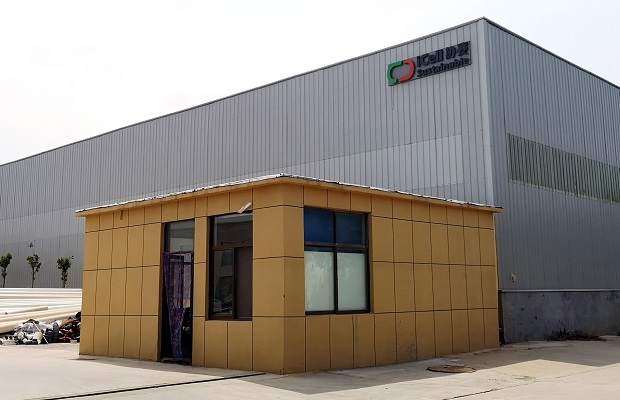
News
Industry update
Technology
Sustainability
Chinese firm scores water cleaning contract for mega RAS project in Sweden
October 17, 2020 By Nestor Arellano
 iCell Sustainable Nutrition productin facility in Shanghai (Image: iCell Sustainable)
iCell Sustainable Nutrition productin facility in Shanghai (Image: iCell Sustainable) A Chinese water treatment company will be collaborating with Quality Salmon in the aquaculture company’s project to build Europe’s largest land-based salmon farming facility.
The Shanghai-headquartered iCell Sustainable announced yesterday that it has secured a contract to handle the water cleaning and extraction for single cell protein from the water of 140-hectare recirculating aquaculture system (RAS) farm that Quality Salmon is building in western Sweden. The park will produce up to 100,000 tonnes of Atlantic salmon per year.
The project in the municipality of Sotenäs has been described as “Europe’s largest blue-green industrial park for salmon farming.”
The letter of intent was signed by iCell Sustainable Nutrition, Hong Kong, and Quality Salmon Sotenäs on September 13, 2020. The agreement also states that iCell will construct and operate its water cleaning and nutrient recovery system by using water from the RAS farm and the harvesting and processing facility to extract single cell proteins.
“iCell is the basis for the most complete recycle approach available for land-based RAS today,” said Mark Rottmann, the company’s chief executive officer. “This project opens the door for iCell to establish an operating company in Scandinavia allowing the local legal entity to grow and service the entire region.”
He said that while this project is the company’s first European foray, the iCell’s technology is already being commercially used in Asia. The company has also been working with companies in other countries that require water treatment for food processing .
The iCell approach treats all water, both the processing water and the RAS discharge water – converting what otherwise would have been a waste sludge into a single cell protein ingredient, said Rottmann.
“This will be decisive to reach the goal of establishing a blue-green circular industrial park for salmon farming with zero emissions and a positive CO2 footprint with the help of 100 per cent green energy,” he added.
Print this page